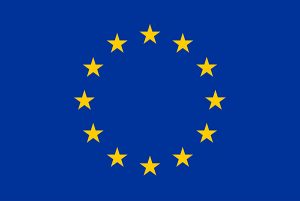SHIPS – Screening and Following up to Improve Health in Very Preterm Infants in Europe
Very preterm infants face higher risks of health and developmental issues than children born at term. Follow-up programmes aim to identify health concerns early in order to enable interventions and optimal management of health care needs. The Screening to improve Health In very Preterm InfantS in Europe (SHIPS) project seeks to create new knowledge about the effectiveness of these programmes and to use these results to develop guidelines for effective follow-up. The overall aim is to improve the health and quality of life of children born very preterm.
SHIPS is a European research collaboration building on the EPICE cohort which includes 6792 infants born before the 32nd week of gestation in 2011 and 2012 in 19 regions in 11 European countries.
Via the four different SHIPS sub-studies the researchers collect data in the study regions on
- the children’s health, healthcare use and quality of life
- the children’s cognitive and motor development
- the families’ experiences of follow-up and subsequent care
- the coverage, content and costs of the follow-up and screening programmes
Therefore, a multi-piece data collection approach was conceptualised to gather data from questionnaires filled out by parents, assessments of children’s (< 28 weeks) development by clinical psychologists, personal interviews with selected parents about their experiences of follow-up, and structured questionnaires sent to directors on follow-up programmes.
View more (Website SHIPS project)
EFCNI is proud to be involved as partner adding patient perspectives and personal experiences to the research process and leading the activities for parental involvement as well as dissemination and outreach in SHIPS. A SHIPS Parent Advisory Board (PAB) with 13 members was constituted:
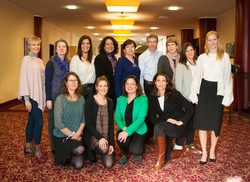
- Charlotte Bouvard, SOS Préma, France
- Monica Ceccatelli, Piccino Picciò Onlus/ Vivere Onlus, Italy
- Mandy Daly, Irish Neonatal Health Alliance INHA, Ireland
- Paula Cristina Guerra, XXS – Associação Portuguesa de Apoio ao Bebé Prematuro, Portugal
- Kristel Kukk, MTÜ Enneaegsed lapsed, Estonia
- Dr Tomasz Makaruk, Fundacja Wczesniak Rodzice-Rodzicom, Poland
- Livia Nagy Bonnard, Melletted a helyem – Right(s) beside you, Hungary
- Mehali Patel, BLISS, United Kingdom
- Karl Rombo, Föräldraföreningen för Prematurfödda Barn, Sweden
- Dr Gert van Steenbrugge, Vereniging van Ouders van Couveusekinderen, (since 2020 renamed in care4neo) Netherlands
- Dr Eleni Vavouraki, ilitominon, Greece
- Yannic Verhaest, Vlaamse Vereniging voor Ouders van Couveusekinderen (VVOC), Belgium
- Mónica Virchez, Prematura, Spain
Results of the ‘Study of Health and Wellbeing at 5 years of age’
We are happy to share with you the results of the SHIPS ‘Study of Health and Wellbeing at age 5’. The study explored health and child development, family wellbeing and use of health services (routine follow-up, emergency visits, hospitalisation) with a parental questionnaire when the children were five years old. Download the brochure in English or your local language and have a look at the interesting findings. The SHIPS team is continuously publishing new research findings in scientific journals and shares these publications on their website.
Learn more: https://epiceproject.eu/en/publications/published-articles.html
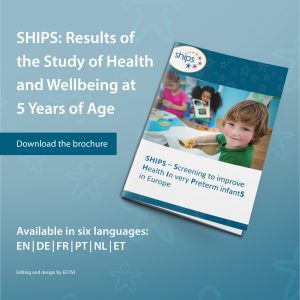
- Resultaten van het “Onderzoek Gezondheid en Welzijn op 5-jarige leeft ijd” (Dutch)
- Results of the “Study of Health and Wellbeing at 5 Years of Age” (English)
- Uuringu “Tervis ja heaolu 5-aastaselt” tulemused (Estonian)
- Résultats de “l‘étude santé et bien-être à 5 ans” (French)
- Ergebnisse der “Studie zu Gesundheit und Wohlbefinden im Alter von 5 Jahren“ (German)
- Resultados do “Estudo de Saúde e Bem-Estar aos 5 anos” (Portuguese)
SHIPS Toolkit
SHIPS offers you a wide range of materials to simplify your communication in order to highlight the importance of follow-up. The different tools are designed to address parents and families, follow-up teams, and healthcare professionals, as well as many more stakeholders active in health services, policy and research. Please consult the following tools below and feel free to use them for your own project communication.
Argumentarium
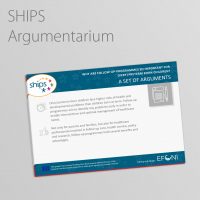
The SHIPS Argumentarium offers you a set of arguments on the importance of follow-up, targeted to parents and families, follow-up teams, and healthcare professionals, as well as for stakeholders active in health services, policy and research.
Infographics
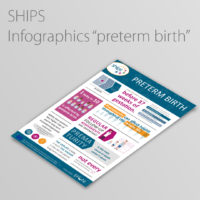
The SHIPS infographic on preterm birth makes complex information about preterm birth and long-term outcomes easy to understand and shareable.
Download Preterm Birth (in Danish)
Download Preterm Birth (in Dutch)
Download Preterm Birth (in Estonian)
Download Preterm Birth (in Polish)
Download Preterm Birth (in Portugese)
Download Preterm Birth (in Russian)
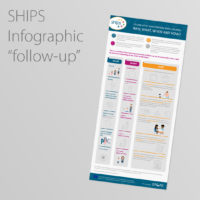
The SHIPS infographic on follow-up gives an overview on the most important areas of follow-up.
Factsheets
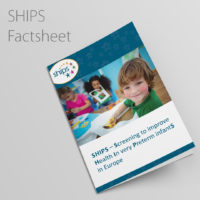
Have a look at the SHIPS factsheet to learn more about the project’s structure and supporters, as well as its general aim and scope.
Download THE SHIPS PROJECT (in English)
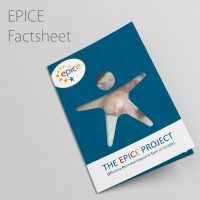
SHIPS builds on a unique European resource – the EPICE cohort. Find out more about the EPICE project and its main research questions and results in this factsheet.
Download THE EPICE PROJECT (in Danish)
Download THE EPICE PROJECT (in Dutch)
Download THE EPICE PROJECT (in English)
Download THE EPICE PROJECT (in Estonian)
Download THE EPICE PROJECT (in French)
Download THE EPICE PROJECT (in Polish)
Download THE EPICE PROJECT (in Portugese)
Download THE EPICE PROJECT (in Russian)
Stakeholder Map
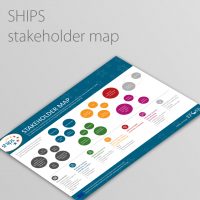
Identifying and approaching specific stakeholders will support your engagement in promoting SHIPS.
Thank you
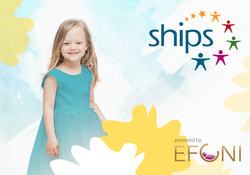
Sincere thanks to all parents and children who joined the SHIPS project. Only because of your participation we have been able to describe the follow-up and health care received by children born very preterm and fill gaps in the current scientific knowledge. Your participation made data available which is needed to raise awareness and facilitate discussion to improve the follow-up situation for children in Europe and makes a difference for future families.
We also would like to warmly thank the SHIPS Parental Advisory Board for their suggestions and the project members for their collaboration.
Please note
This project has received funding from the European Union’s Horizon 2020 research and innovation programme under grant agreement No 633724
